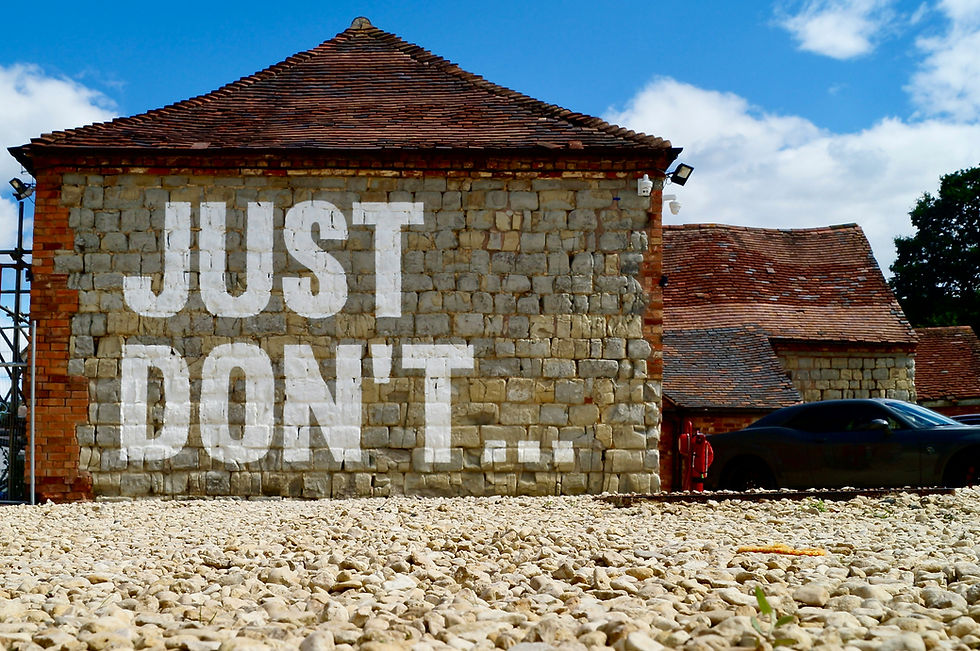“How Would You Feel If You Were White?”
- Jessica Kiragu
- May 10, 2023
- 3 min read
“How would you feel if you were white?”
My 7-year-old biracial daughter asked her black dad this question. "I don't know," he answered, "I've never been white."

“How would you feel if you were white?’ her dad asked her. “I kind of am,” she replied.
And in a way, she is. With a white mom and a black dad, she identifies as "kind of white." She also made up a little song that goes "Beautiful and black. Beautiful and Black. I am beautiful and black." My clever girl is questioning, integrating new information, and unlocking possibilities for who she can be. She can be both black and white, even though the world around her might suggest otherwise.
I love her 7-year-old logic. Even more so, I appreciate her reason for asking. When we inquired why she asked her dad this, she replied, "because I'm a curious child."
I wish we all possessed this type of curiosity as we strive to comprehend one another, understand ourselves, and establish our sense of place and belonging. There’s an honesty and purity in her questioning. It contrasts what I learned about race.
I've always felt pressure to be certain, or at least I can't remember a time when I didn't feel this way. This demand seems to be pervasive in American culture, which insists that we should be resolute and unwavering. We're encouraged to pick a side and stand our ground.
This attitude shrouded my early understanding of race. Growing up, my white community taught me to unquestionably believe that everyone's knowledge and experiences of race aligned with a narrative of colorblindness. We viewed racism as a thing of the past. And we arrived at these beliefs seemingly without ever asking anyone who wasn't white about their experience with race and racism. Even when people said otherwise, we clung to these ideas. Because the truth was that colorblindness and the eradication of racism were the only acceptable perspectives.
I never learned to be curious about race. I had internalized the belief that race was meaningless and racism had ended. There was nothing to be curious about. Despite the absence of racism in my life and our lack of discussion of race, we white people held comprehensive and authoritative knowledge on race and racism. It appeared that there was nothing left for us to learn.
Even today, when I try to challenge other white people on issues of race, I’m asked to provide proof and irrefutable evidence to support any opposing views. The lived experiences and stories of others aren’t enough. Sometimes it’s direct, while other times it’s more subtle, but there’s a common thread of denial that there can be other truths about race and racism out there. I overwhelmingly sense that my own struggle with curiosity and unknowing when it comes to race is shared with other white people.
I don't need to prove anything, though. Race has significance and racism exists because we've never collectively resolved the racial divide and social hierarchy that whiteness created. We hear the truth of this in the experiences and stories of people of color. It's with us too in how the stories of white people resisting white superiority are overshadowed by stories of white innocence. I'm finding that getting more curious about race and its impact on all of us surely doesn't hurt.
So, I’m rejecting false expertise. It's absurd to expect that I can know someone else's experience better than they do. To believe that I can is to believe a lie. It's also ridiculous to assume that my knowledge and experience of race in the United States is universal. Moreover, for much of my life, I didn't know how to talk about, think about, or recognize the ways race impacts me. Indeed, I’m no expert.
Now, like my little one, I’m asking, what *does* it feel like to be white? How does my experience as a white person differ from people of color in America? What are the ways that a life of whiteness has affected me? And, what am I going to do about it?




Comments